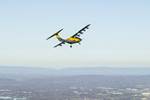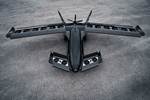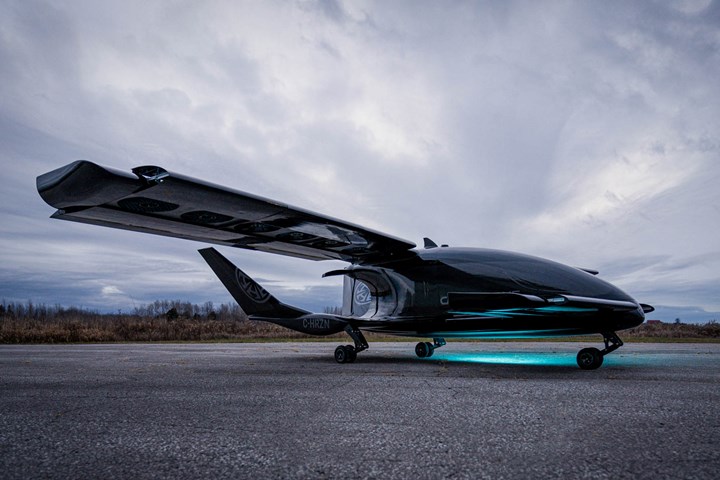Horizon Aircraft provides update on technical flight testing
Positive progress during eVTOL prototype testing approaches full transition to forward flight, aids in final full-scale aircraft design for completion and testing in 2026.
New Horizon Aircraft Ltd. (Toronto, Canada), doing business as Horizon Aircraft, a hybrid electric vertical takeoff and landing (eVTOL) aircraft developer, announces several flight testing updates as the company continues to provide critical technology elements of its composite aircraft prototype, Cavorite X5.
“The positive test results continue to validate our technology, our practical approach and the team’s capability to deliver on our target timeline,” says Brandon Robinson, Horizon Aircraft chairman and CEO. “Over the past several months … the transition flight testing program has taken significant strides forward, with the aircraft demonstrating impressive stability and control all the way from hover to approaching transition speeds.” This is further showcased in Horizon’s most recent flight test, shown in the video below.
Validation of the company’s patent-pending yaw control system, a key component of the HOVR Wing technology, has been an important element in recent testing phases. This system enables precise hover and performance in strong crosswinds, providing a smooth and comfortable ride for passengers as well as enhanced stability and control for pilots.
Full-scale propulsion unit production has also commenced. With the detailed design and aerodynamic analysis sufficiently developed, physical production and testing of the core vertical lifting fan technology is another technical step toward building the full-scale prototype aircraft.
In addition, Horizon’s large-scale prototype continues to reach technological milestones as it moves through its rigorous flight testing program governed under Transport Canada’s Special Flight Operations Certificate (SFOC). Transitional flight tests remain on schedule to be completed by mid-summer and the aircraft continues to demonstrate expected stability and control.
Lessons learned through its current large-scale prototype flight test program will be leveraged to develop Horizon Aircraft’s full-scale aircraft, the Cavorite X7. Its design is “expected to fly faster and carry more cargo than its all-electric competitors,” featuring a wing system that will enable it to fly most of its mission in a configuration like that of a normal aircraft. A hybrid electric main power system will enable recharging of its battery array in flight and after landing.
Related Content
-
Midnight production aircraft completes full transition flight
This is Archer’s second full-scale eVTOL aircraft to achieve this milestone, critical to being able to carry commercially viable passenger payloads.
-
Composites end markets: Automotive (2024)
Recent trends in automotive composites include new materials and developments for battery electric vehicles, hydrogen fuel cell technologies, and recycled and bio-based materials.
-
Hexagon Purus opens new U.S. facility to manufacture composite hydrogen tanks
CW attends the opening of Westminster, Maryland, site and shares the company’s history, vision and leading role in H2 storage systems.














